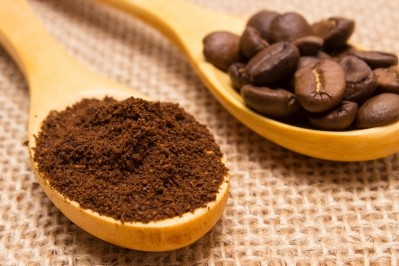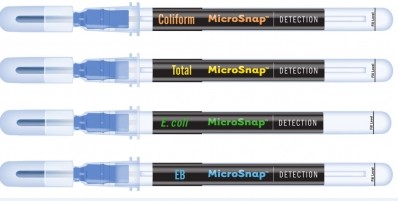EDITOR'S SPOTLIGHT: SCIENCE & REGULATION
Sports Nutrition: NutraIngredients’ research round-up

NutraIngredients presents a round-up of notable studies that could prove influential for athletes or consumers regarding food and supplement choices, as well as nutritional behaviours.
The results of a study appears to support the use of Green-Coffee Extract (GCE) supplementation for weight management as scientists point to its antioxidant and anti-inflammatory activities as well as its role in glucose absorption and utilisation.
With applications for sports nutrition, the team claims that GCE bean extract mainly comprises of unroasted coffee beans that contains higher amounts of bioactive phytochemicals.
These chemicals include polyphenols, principally chlorogenic acids, which are said to regulate hypertensive, vasoreactivity, and glucose metabolism.
Coffee’s role in sports cannot be mentioned without discussing how caffeine fits into the equation. Here, the team highlights caffeine’s ability to stimulate fat utilisation in muscle tissue during exercise.
Moreover, a dose-dependent increase in basal energy expenditure with caffeine intake; attributes this effect to an increase in lactate and triacylglycerol production and increased vascular smooth muscle tone.
Athletes supplementing their diets run the risk of ingesting contaminants, undefined ingredients, and variable content of biologically active substances due to lax standards in a number of countries.
Authority rules change?
A review carried out by The Norwegian Olympic and Paralympic Committee and Confederation of Sport, Norway states that athletes will be at risk of failed doping tests until authorities see the need for changing the rules and guidelines on how these products are regulated.
“The growing segment of herbs and botanicals has to be regulated in a way that allows athletes and the general population to safely use the products that are freely available in store shelves,” the review says.
“The governmental system of regulations and safety- and quality-assurance programs do not include specific laboratory testing for banned substances according to the WADA list (e.g. anabolic steroids, prohormones, and stimulants).
“This system does not include tests for contamination with other health-threatening substances (chemical toxins, unknown bioactive components).
The review also acknowledges that during the last decade, sport-specific certifications and quality assurance programs for supplements have developed.
“Such third-party certifications can provide an independent assurance that the products are free of banned substances, according to the WADA list,” the review adds.
“Although this helps athletes to choose supplements with the lowest possible risk, the risk can never be completely eliminated. Accordingly, use of supplements should always be based on a balance between potential benefits and potential risks.”
High-performance athlete needs
Finally, Louise Burke, head of sports nutrition at the Australian Institute of Sport authors a paper, in which she points out why high performance athletes are more interested in real-life issues that are hard to encapsulate.
Here, she describes these athletes’ prime interest in detecting benefits that are meaningful to sporting competition outcomes.
This explains the use of several supplements in combination or the use of same supplement over successive events.
“Substantiating the claims made about performance supplements is a challenging process,” she writes, highlighting a study that previously notes how high performance athletes’ requirements and processes of sports science research, are often misunderstood by mainstream researchers.
However, Burke also states this area of sports nutrition is probably the most affected by poor research methodologies, a low bar for publication and publication bias.
“The most common types of information around supplement efficacy presented to athletes and coaches come from models with the lowest rigor: anecdotes/observations from athletes,” she says.
“Despite some hesitancy about the scientific credibility of this type of information, science has sometimes come to support supplement practices observed among athletes which were earlier dismissed as being incorrect or unlikely to achieve performance benefits.
“Indeed, some of the first trials of the lower doses of caffeine and its use during, rather than an hour prior to exercise, were undertaken to confirm and explain the persistent observations of the use of cola drinks (providing caffeine doses of 1-2 mg/kg) in the last 25% of prolonged endurance/ultra-endurance races,” Burke points out.
“However, caution is also advised due to the slow and non-systematic pathway of learning via experience, as well as the lack of transparency around the commercial involvement of athletes and scientists with the supplement industry.”
Source: PhytoMedicine
Published online: doi.org/10.1016/j.phymed.2019.153018
“The effect of green-coffee extract supplementation on obesity: A systematic review and dose-response meta-analysis of randomized controlled trials.”
Authors: Zahra Gorji et al.
Source: Current Opinion in Endocrine and Metabolic Research
Published online: doi.org/10.1016/j.coemr.2019.07.004
“Dietary supplements and elite athletes: when nature becomes high risk.”
Authors: Ina Garthe et al.
Source: Current Opinion in Physiology
Published online: doi.org/10.1016/j.cophys.2019.05.009
“Supplements for Optimal Sports Performance.”
Authors: Louise M Burke et al.















